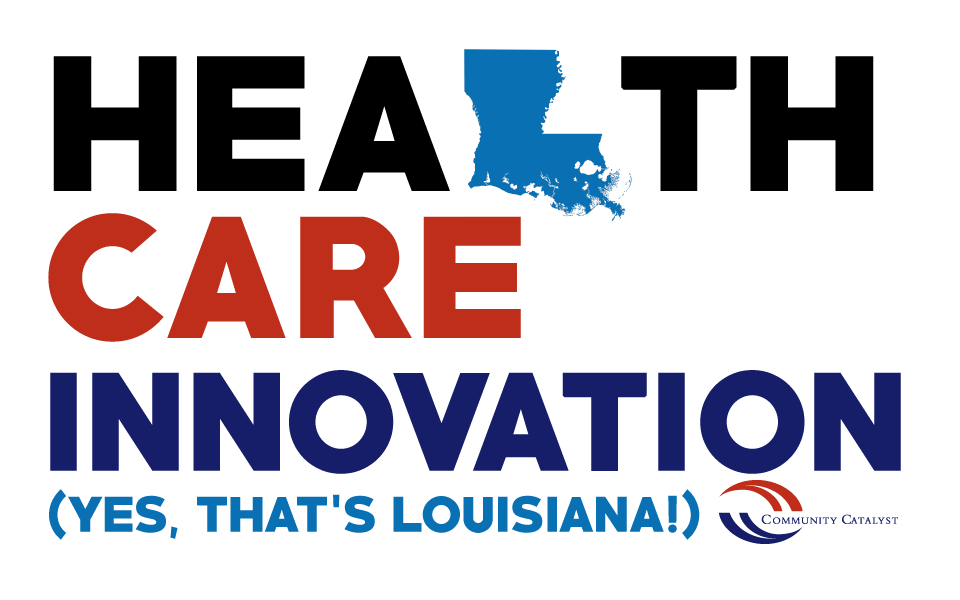Louisiana Is a Health Care Innovator (Yes, Louisiana!)
Louisiana is the leading the way when it comes to being innovative to improve the lives of its citizens.
Our new Governor John Bel Edwards boldly campaigned that he would expand Medicaid in a deeply red state. He appointed a leader who thinks out of the box in Dr. Rebekah Gee, Secretary of the State Department of Health and Hospitals, and kept his promise.
You may have read that Louisiana is the first state to utilize food stamp data to fast-track Medicaid enrollment. Through a state plan amendment, we were able auto-enroll about 105,000 eligible residents based on their participation in SNAP. Along with linking databases of participants in the Greater New Orleans Community Health Connections Program (which offered limited Primary Care in the four Parishes around New Orleans) and Take Charge Plus (which offered family planning benefits), there were already 233,794 enrollees in the first 30 days of the enrollment period.
With such great early successes you may be wondering like me, what can they possibly do next? But, this innovative team just keeps on thinking. Their vision of having a healthier more equitable state is just beginning.
 The Special Projects team is now engaging with the Department of Corrections (DOC) to set up pre–release enrollment for justice-involved individuals into Medicaid. This will allow those men and women released from prison or jail to not only be linked to an insurance plan that can cover their provider visits and medications, but also to receive much-needed care coordination upon release.
The Special Projects team is now engaging with the Department of Corrections (DOC) to set up pre–release enrollment for justice-involved individuals into Medicaid. This will allow those men and women released from prison or jail to not only be linked to an insurance plan that can cover their provider visits and medications, but also to receive much-needed care coordination upon release.
Prior to expansion, Medicaid was only available to cover the cost of hospital stays of eligible justice-involved individuals, which was typically limited to persons with disabilities. With Medicaid expansion, the cost of hospital stays for almost all justice involved individuals will now be paid for by Medicaid since eligibility will be based income rather than disability. This is expected to relieve a great financial hardship for the corrections system. Additionally, for those offenders that DOC indicates have high-need medical issues, the Louisiana Department of Health and its contracted insurance plans are working to ensure those individuals have focused case management prior to their release. This ensures linkages to care and other needs in order to create the best opportunity for successful reentry and to prevent recidivism.
Due to the complexity involved in enrolling and stabilizing this population, the state is taking the project one phase at a time and starting with offenders at the state level in the nine state-run facilities first (approximately 3,500 releases each year). The next phase of the project will involve enrolling state offenders housed within 104 local jails (approximately 15,000 releases each year). A stakeholder process will be initiated as the state approached phase 2 in order to engage local jails, providers and advocates to make enrollment successful.
We know that many of the individuals who are currently incarcerated have high rates of mental illness and substance use. This population in Louisiana is also disproportionately male, minority and poor. Recidivism can be correlated to the lack of treatment of these behavioral health issues. The leadership Louisiana is providing in the pre – release enrollment project for Medicaid of the incarcerated population is an example of how innovation and creativity can not only decrease costs to systems but save lives.
As a proud Louisiana resident, I look forward to what ground breaking strategies this team will come up with next to ensure we have a healthier more prosperous state. Geaux Louisiana!!!
Joia Crear Perry, M.D. is CEO of the National Birth Equity Collaborative and a member of Community Catalyst’s Board of Directors.